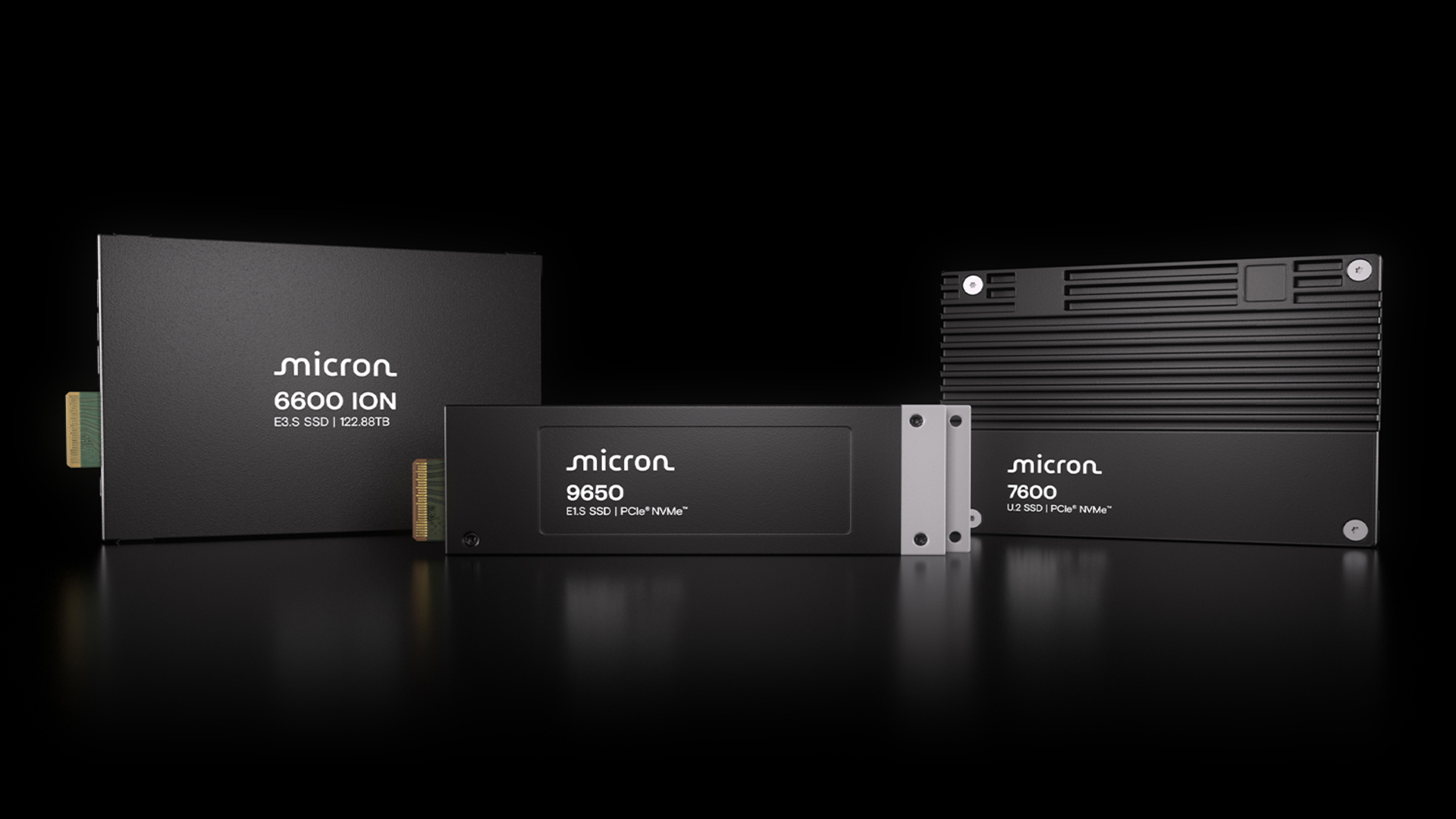The world's fastest SSD has been announced, but it won't fit in a PC — Micron 9650 is the first PCIe Gen6 SSD and will reach 28GB/s in sequential read
PCIe Gen6 SSDs are here

Sign up for breaking news, reviews, opinion, top tech deals, and more.
You are now subscribed
Your newsletter sign-up was successful
- Micron 9650 SSD reaches 28GB/s, but it’s strictly for data centers, not consumers
- Liquid cooling in SSDs is no longer hypothetical, and Micron just made it standard
- The 7600 SSD delivers ultra-low latency, yet it still depends on how workloads behave in reality
Micron has introduced what it describes as, “the world’s first PCIe Gen6 data center SSD,” with claims of as-yet-unmatched performance tailored for modern AI workloads.
The 9650 SSD reportedly hits sequential read speeds of up to 28 GB/s and sequential write speeds of up to 14 GB/s.
However, it comes in industrial-grade E3.S and E1.S form factors, making it incompatible with standard desktop PCs, limiting its direct accessibility to broader consumer markets.
Designed for performance but constrained by form factor
This new model targets high-intensity AI environments, offering 5.5 million IOPS in random read performance and up to 900K IOPS for random writes.
Micron’s 9650 improves on Gen5 SSDs with up to 25% and 67% greater energy efficiency for random writes and reads.
It also incorporates liquid cooling options for dense server configurations, and its reduced power draw and emissions support both performance gains and sustainability efforts in data centers.
“With the industry’s first PCIe Gen6 SSD, industry-leading capacities and the lowest latency mainstream SSD - all powered by our first-to-market G9 NAND—Micron is not just setting the pace; we are redefining the frontier of data center innovation,” said Jeremy Werner, senior vice president and general manager of Micron’s Core Data Center Business Unit.
Sign up to the TechRadar Pro newsletter to get all the top news, opinion, features and guidance your business needs to succeed!
While these specifications may sound impressive on paper, the real test will be in sustained, real-world workloads under diverse operating conditions.
Several vendors have highlighted its potential in supporting inference pipelines and retrieval-augmented generation, suggesting the 9650 could serve as a key infrastructure component for GPU-based servers.
Still, wider adoption will likely hinge on pricing, reliability, and actual ecosystem integration.
Alongside the 9650, Micron also unveiled its 7600 SSD based on PCIe Gen5 and the Micron 6600 ION SSD, which focuses on capacity.
The 7600 claims to deliver sub-1 millisecond latency on demanding database applications like RocksDB.
With read speeds reaching 12 GB/s, the 7600 outperforms existing Gen5 SSDs in metrics such as random writes and energy efficiency.
But the claims of having the fastest SSD must be balanced against actual deployment flexibility and sustained workload performance.
“Micron’s cutting-edge storage technologies showcase the importance of fast, efficient storage as AI workloads continue to redefine infrastructure requirements,” said Raghu Nambiar, corporate vice president, Data Center Ecosystems and Solutions, AMD.
You might also like
- Here are the best mobile workstations around today
- Take a look at some of the best external hard drives
- Google Workspace is hitting back against the most prolific methods of account takeover with these super simple changes

Efosa has been writing about technology for over 7 years, initially driven by curiosity but now fueled by a strong passion for the field. He holds both a Master's and a PhD in sciences, which provided him with a solid foundation in analytical thinking.
You must confirm your public display name before commenting
Please logout and then login again, you will then be prompted to enter your display name.